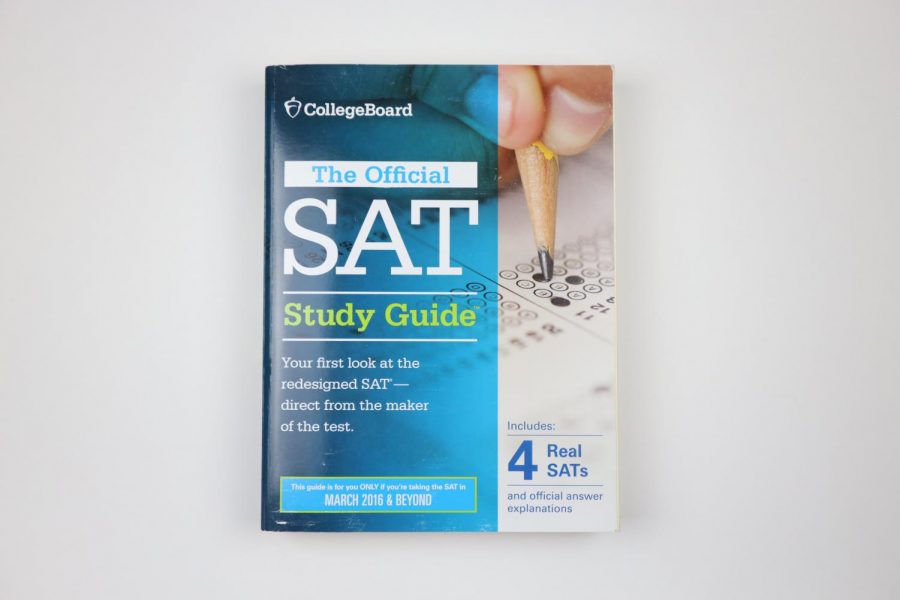Universities’ test-optional and test-blind policies spark mixed feelings among students
The test-optional and test-blind policies set forth by universities in the upcoming years leave many upperclassmen confused.
The test-optional and test-blind policies many universities are adopting may originally sound straightforward: seniors this year will still have the choice to submit standardized test scores, and the policies could theoretically ensure greater equitability in admissions. Yet some upperclassmen still wonder if they should drop testing, and whether colleges truly succeeded in making admissions more equitable.
The University of California school system announced in May 2021 that it would not consider standardized test scores in the admissions process from fall 2021 to spring 2025. The decision came from a settlement in a 2019 lawsuit that was filed against the UC system regarding potential inequities in admissions caused by standardized scores.
Several other institutions that originally enacted test-optional policies due to the pandemic will extend their test-optional or test-blind policies into the next few years.
Senior Malika Reed was one of many to feel relieved in response to the policies.
“With online learning, it has caused so many students to struggle and not do the best that they could when we were in school,” Malika said. “So for [colleges] to actually take [that] into consideration and make [applications] test-optional is such a blessing to me.”
Senior Katherine Lai also felt a decrease in stress due to the policies and believed that “it’s not going to be the end of the world” if she did not do “amazing” on the test.
While some students plan to completely drop standardized testing from their application process, others believe it might be rather worthwhile to still take the exam and submit the score as a precaution. Katherine, Malika and junior Trevan Cui all intend to take the SAT this upcoming school year.
“It gives [college admissions officers] an increase in their ability to measure your level in comparison to any other applicant,” Trevan said.
Trevan also noted that while he will try his best on the test, he will invest less energy into achieving a high score because of its decreased significance.
Although the pandemic was a short-term reason that put these policies into motion, universities had a longer-term reason: to make admissions more equitable. As suggested by the 2019 lawsuit, some felt that earlier testing policies put a certain demographic of students –– such as low-income students –– at a disadvantage.
According to senior Romeo Bienvenido Villanueva, standardized testing exacerbates the disparities between students who can afford test-prep courses and materials, and those who cannot.
This issue was confirmed according to College Board statistics compiled by The Boston Globe, which suggested that the higher the family’s income, the higher the student scored. Data compiled by the ACT indicated a similar trend.
“It never really felt standardized to me,” Romeo said. “It’s all about knowing how to take a test versus actual knowledge.”
Romeo argued that if standardized testing were to remain as an existing factor in college applications, the test-prep process should be improved with more accessible and affordable programs for low-income students.
“Everyone should have access to preparation for this test if it’s a standardized test,” Romeo said.
Romeo remembered the frustration of his older siblings over not being able to have the same amount of test-prep that many of their peers had.
During his own SAT test in April, Romeo recalled overhearing fellow test takers discussing their own SAT-prep experiences and exchanging tips and tricks.
“I was just like, ‘Whoa, I didn’t have any of that,’” Romeo said. “I’m just coming in, this is my first go at it. That made me really nervous, but I tried to calm down.”
Based on his experiences and that of his siblings, Romeo felt that the test-optional policies could benefit those who lacked the time and resources to prepare for the tests.
“It was the standardized test that was pulling me back when I was thinking of college applications,” Romeo said. “So now that that’s gone, I feel a lot more confident and relaxed going into college applications in the fall since I did the other work of trying to build up my [applicant profile].”
Junior Trevan said, however, that test-optional policies only shift the weight to other aspects of the application, making extracurriculars, GPA, and other non-test achievements more significant.
He admitted that there was a good intention behind making standardized tests optional, but he felt that higher-income students could still have an advantage in the ability to build a resume.
“It’s very hard to properly make higher education accessible for the entire population,” Trevan said.
Yet the students who were interviewed collectively felt that the test-optional policies have their benefits, because they de-emphasize test scores and lead to a more holistic approach to admissions.
For example, Trevan predicted that less time and money would be invested into shaping a highly desirable test score, leading to a stronger devotion to other passions and interests.
Katherine shared a similar perspective, and believed that “a lot of people can be really successful and have a lot of potential and strength without having a great test score.”
“Now, college admissions officers need to focus on who the student really is [without having] that number attached to them,” Romeo added.
Katherine believes that the policies are the first step to making higher education more accessible for all communities.
“Making [the tests] less important in the scale of everything else does help,” Katherine said. “Even if just on a small scale, because we have to start somewhere.”





Ms. Duran | Aug 23, 2021 at 9:23 am
Great article! If students want support brainstorming ways to get involved- reach out to the College & Career Center staff or stop by P-15. Also, there are thousands of wonderful colleges in the USA alone- Ms. Price can help 12th graders (and 11th graders in spring) create a balanced college list with fantastic options.